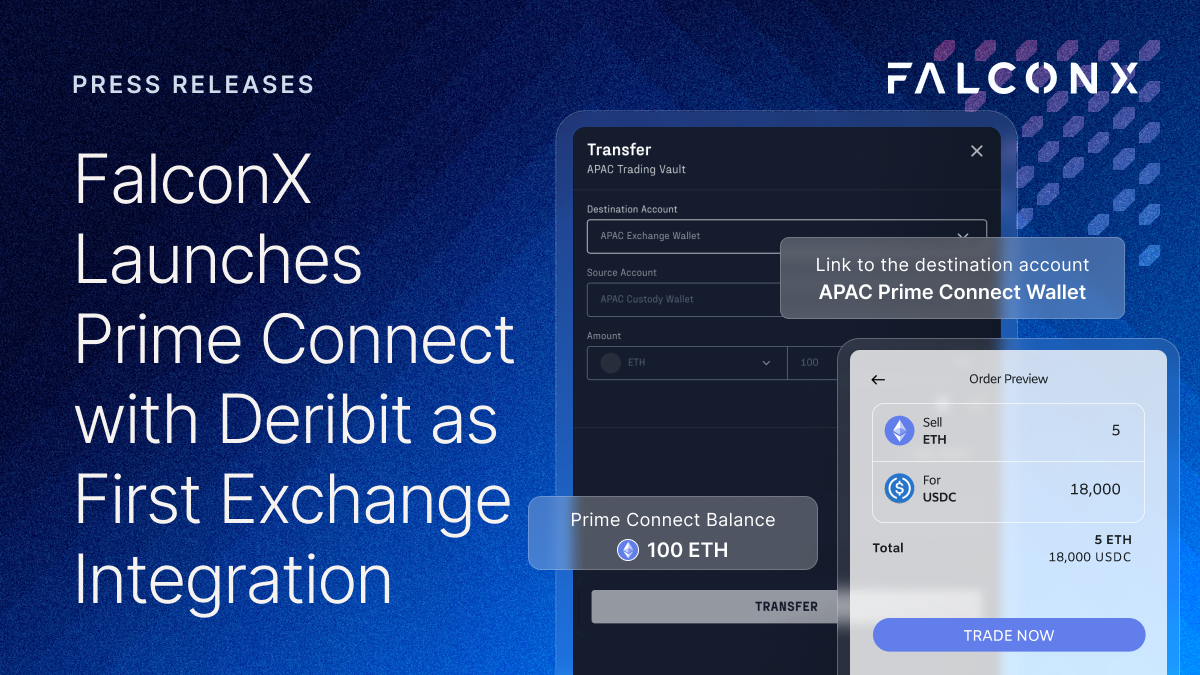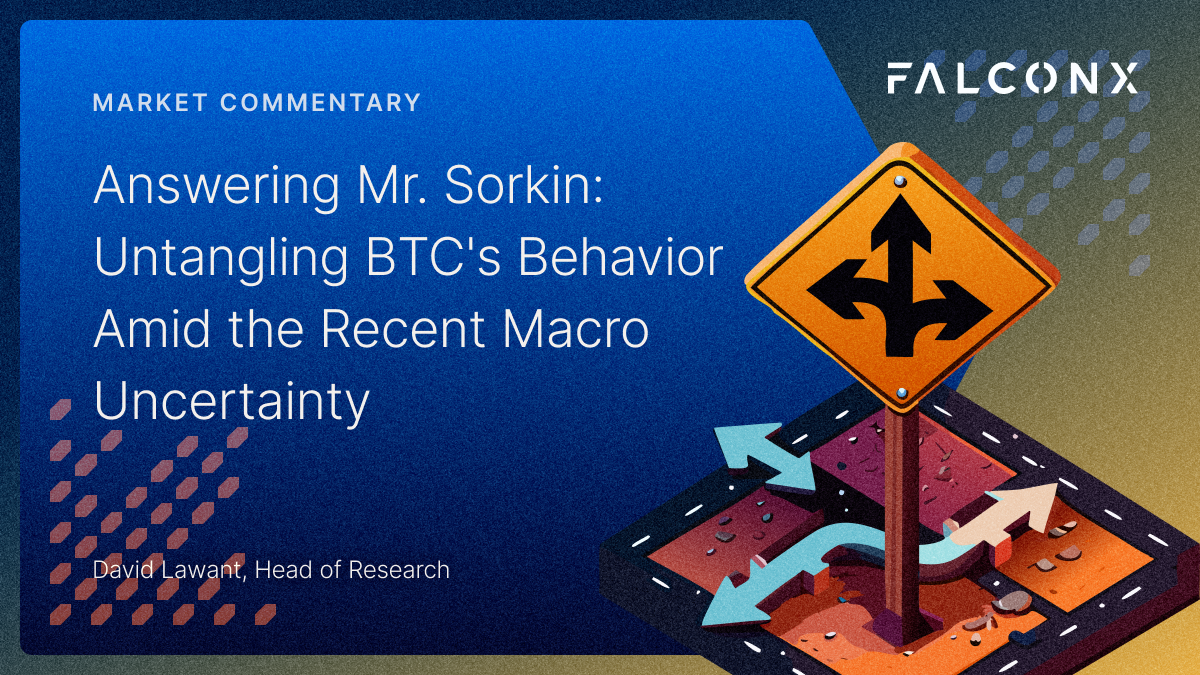The company's CEO is counting on others to follow.
When FalconX formally registered as a U.S. swap dealer this month, the crypto startup became the first of its kind to enter what CEO Raghu Yarlagadda contends is a massive, underserved market. Despite the advantages of being there first, he says he hopes competitors will join in.
“The demand is huge,” Yarlagadda said in an interview. “I really hope other players also come in, because it’s the right thing for the industry.”
The arrival of a native crypto business as a broker registered with the National Futures Association – and the oversight from the Commodity Futures Trading Commission (CFTC) that comes with it – could mark a significant stage in mainstreaming crypto. But as Anchorage Digital recently illustrated as the first crypto firm to get a federally approved banking charter, being first also comes with unique pressures and vulnerability to regulatory sanctions if they come up short.
FalconX is akin to a financial wholesaler that serves only institutional clients, such as hedge funds and other financial firms that want to give clients access to crypto derivatives – contracts in which parties make a deal with each other to buy or sell an asset under certain conditions. As a swap dealer, FalconX can join the ranks of major Wall Street banks, such as Goldman Sachs (GS) and JPMorgan Chase (JPM), in providing a service for customers who want to acquire or unload derivatives. In an early crypto foray last year, Goldman Sachs began offering bitcoin (BTC) futures trading.
Crypto derivatives are much like the traditional financial industry’s futures and options overseen by the CFTC. But Yarlagadda said institutional customers have been waiting for brokers to fill their needs for over-the-counter (OTC) derivatives.
“Ninety-nine percent of futures trading is outside the U.S. despite a sizable portion of institutions being in the U.S,” Yarlagadda said of the current crypto derivatives market. “These institutions are taking a lot of risk, because these external entities, they’re not under jurisdictions as sophisticated as the U.S.”
As recently as two years ago, the vast majority of his San Mateo, California-based company’s customers were cryptocurrency businesses. Now, he said, most of them aren’t native to crypto. Mainstream financial firms have been drawn in by – among other things – their never-ending search for higher yielding investments.
“A lot of traditional institutions are coming to FalconX,” Yarlagadda said.
A swap dealer in the U.S. has to register when it’s transacting at least $8 billion in contracts a year. Yarlagadda said demand will far outstrip that threshold, and the company is working with the industry’s global trade group, the International Swaps and Derivatives Association, on figuring out what typical crypto contracts should look like.
“Our priority is to develop standard terms for products that are already traded, such as cash-settled forwards and options referencing bitcoin and ether [ETH],” ISDA CEO Scott O’Malia said last month, adding that his organization is trying to set up templates for on-chain smart contracts. He said the association is working with the market players “including our newest crypto asset members, and we encourage other market participants interested in joining the conversation to get in touch.”
Fierce volatility and other complications unique to crypto markets “could theoretically be addressed by robust margin requirements and risk management,” said Dan Awrey, a professor who teaches derivatives policy at Cornell Law School. Still, he added that “smaller firms, with fewer counterparties and exposure to highly correlated market risks, are ultimately at a higher risk of default than many incumbent firms.”
Also, dealers clearing and settling trades with distributed ledger technology could “face unique operational and cybersecurity risks stemming from, among other things, reliance on oracles and technologically hardwired margin requirements that may limit counterparty flexibility in times of distress,” Awrey said.
FalconX is preparing itself for the kind of disclosures, audits and scrutiny that come with dealer registration. For the next two quarters, the company will be hard at work “to continue to build that infrastructure,” Yarlagadda said.
The industry is also closely watching the CFTC’s consequential decision over whether to approve an application from FTX.US allowing the company to directly clear its customers’ margin-backed derivatives. The agency is said to be holding for a roundtable meeting next month to discuss the idea, and it's fixed on May 25 for that public discussion, according to a person familiar with the plan.




